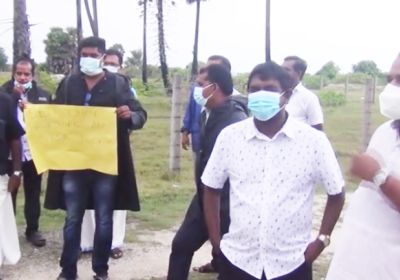
Despite ongoing repression, Tamils continue to fight for their rights, including over the seizure of Tamil land for military bases, reports Chris Slee.

Despite ongoing repression, Tamils continue to fight for their rights, including over the seizure of Tamil land for military bases, reports Chris Slee.

The Tamil Refugee Council (TRC) has condemned the Australian government for supplying five drones to the Sri Lankan police, reports Chris Slee.
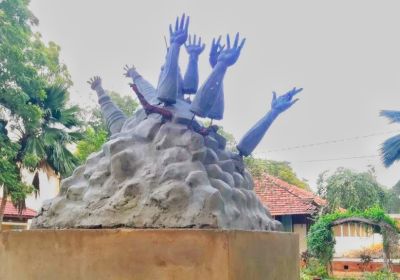
Sri Lankan soldiers and police have demolished a monument at Jaffna University dedicated to marking the massacre of Tamils at Mullivaikkal in 2009, reports Chris Slee.
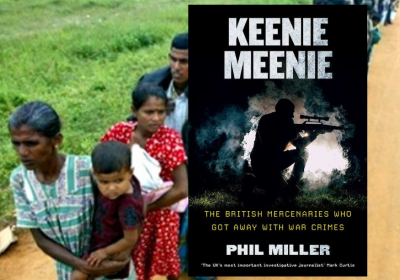
Chris Slee reviews a new documentary showing how British mercenary company Keenie Meenie Services trained a notorious Sri Lankan government paramilitary force, responsible for the torture and murder of Tamil civilians.
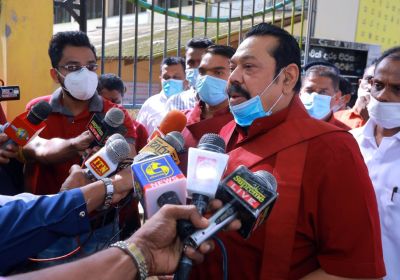
The situation for Tamils in Sri Lanka is likely to worsen, writes Chris Slee, after the Sri Lanka Peoples Front, a right-wing alliance headed by Prime Minister Mahinda Rajapaksa, won 145 seats in Sri Lanka's 225 member legislature in the August 5 elections.
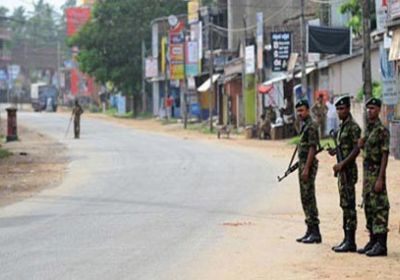
The Sri Lankan government has used the COVID-19 pandemic as an excuse for increased repression of the Tamil people, writes Chris Slee.
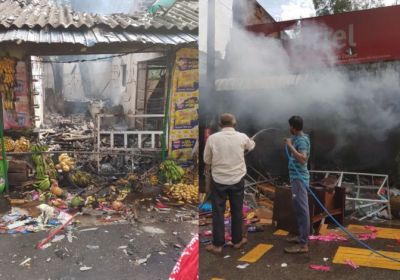
A state of fear is being re-established in Sri Lanka ahead of snap elections, writes Chris Slee.
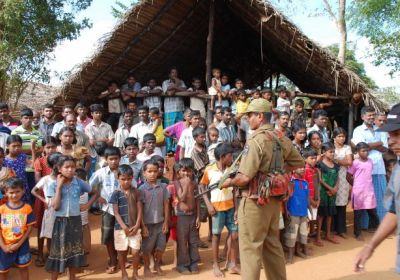
Gotabaya Rajapaksa, regarded by many Tamils as a war criminal, won the Sri Lankan presidential election on November 16 with 52.3% of the vote.
He was defence secretary in 2009, when the Sri Lankan armed forces massacred tens of thousands of Tamils in the final stages of their war against the Liberation Tigers of Tamil Eelam (LTTE). The LTTE were fighting for an independent Tamil homeland in the north and east of the island of Sri Lanka.
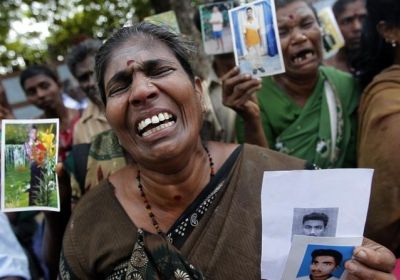
A new report shows why Tamil refugees fear being sent back to Sri Lanka, and why it is essential to campaign against the Australian government's policy of deporting them or pressuring them to return "voluntarily", writes Chris Slee.
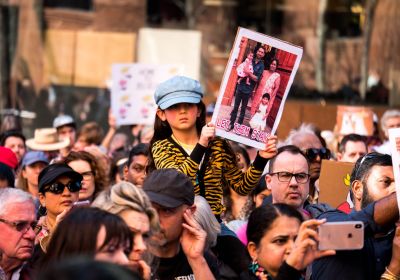
The following speech was given by Barathan Vidhyapathy, from the Tamil Refugee Council, outside the Federal Court hearing into the fate of the Tamil family of Priya and Nades and their two Australian-born daughters, in Melbourne on September 19.
The family, who had lived in Biloela, Queensland, for four years before they were put in a Melbourne immigration detention centre in March last year, is being threatened with deportation to Sri Lanka.

Sri Lanka has a long history of discrimination against Tamils. In 1948 Tamil plantation workers were deprived of citizenship. In 1956 Sinhalese was made the sole official language, denying the Tamil language equal status, writes Chris Slee.